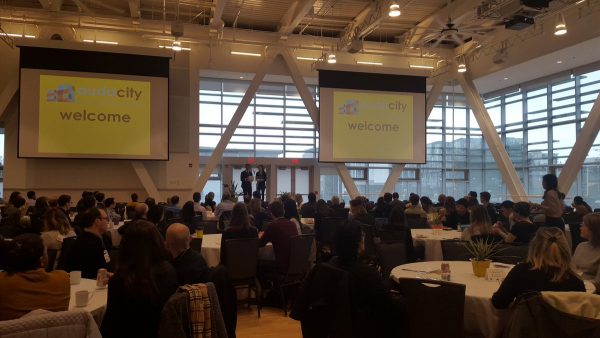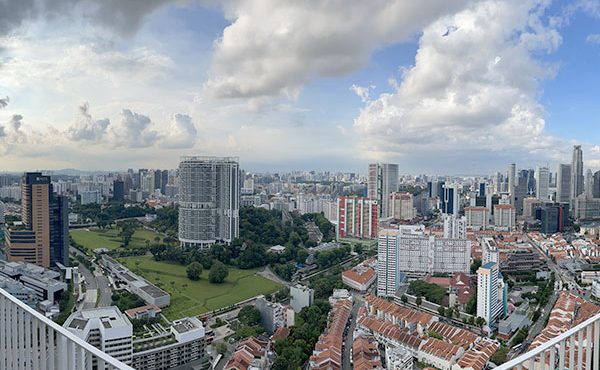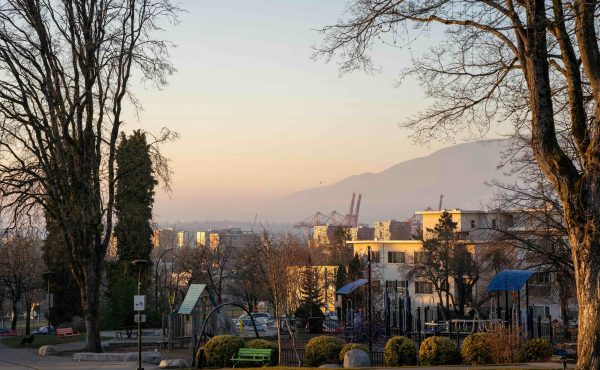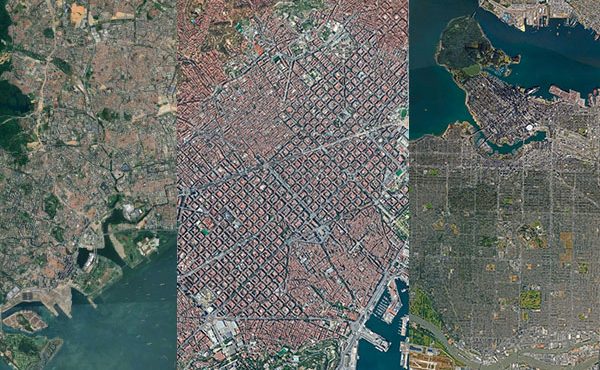
The 9th annual UBC SCARP Student Symposium took place on Friday, March 3rd at the AMS Nest on the UBC Campus. This year’s theme was audacity – bold planning ideas for communities. A diverse audience of 250 students, faculty, planners, urbanists and community members came together to discuss the need to take a brave stance against the status quo and demands a push for new ideas, innovations, and actions.
The speakers and session topics featured a range of unique speakers and breakout sessions. Here is an overview of some of the highlights of the symposium, from the perspective of the Twitter-sphere. You can review all the tweets from the event by searching for #SCARPsymp on Twitter
Opening Keynote: Severn Cullis-Suzuki
Severn is an Earth Charter Commissioner and Council Member; host of the APTN TV series ‘Samaqan Water Stories’; and board member of the David Suzuki Foundation. She has undertaken study of the endangered Xaayda kil (Skidegate dialect of the Haida language) and was a founding member of the Haida Gwaii Higher Education Society.
“Community planners, we need you to promote diversity in places and people.” @SevernSuzuki #scarpsymp pic.twitter.com/Cnff9Tr6PB
— Spacing Vancouver (@spacingvan) March 3, 2017
#SCARPsymp “Nothing more audacious than a society where we can be who we say we are.” – @SevernSuzuki
— shaguftapasta (@shaguftapasta) March 3, 2017
@SevernSuzuki: As planners, those at #SCARPsymp can help create system change thru 1) energy revolution 2) diversity & 3) reconciliation.
— Cail Smith (@planningtoride) March 3, 2017
More socially conscious urban planning, one way to protect environment and our cultural diversity, our humanity – @SevernSuzuki #scarpsymp
— UBC DSI (@UBCDSI) March 3, 2017
@SevernSuzuki discussing intersections of indigenous knowledge, environmental sustainability & personal authenticity at #SCARPsymp
— Spacing Vancouver (@spacingvan) March 3, 2017
.@SevernSuzuki ends on a note to “keep showing up” and focus on relationship building with aboriginal communities. #SCARPsymp pic.twitter.com/VlNvTRDEaa
— Stuart Hamre (@stuart_hamre) March 3, 2017
Panel Session I
Bricks, Beams and Brews: The Transition of Inner City Industrial Lands
Vancouver’s inner city industrial lands are currently in a state of transition, edging away from ‘traditional’ industrial to creative manufacturing. This session explored the transformation of our inner city industrial lands to accommodate emerging industrial typologies and external residential and commercial pressures. What does this evolving sector mean for the future of these areas in the city?
How do we be more… industrious with or #vancouver‘ industrial lands? #SCARPsymp. Tech, food and ahh right, planning pic.twitter.com/OYOxdKIArQ
— Alex Taciuk (@taciuk) March 3, 2017
Once industrial land is gone, it won’t go back. Those working in industrial econ don’t find jobs in the new econ. #SCARPsymp
— Cail Smith (@planningtoride) March 3, 2017
Turnip the Beet: Pushing the Limits of Urban Agriculture
With increasing pressures on land for residential development, and an affordability crisis in the region, why should we make space for urban agriculture? This exciting panel explored how urban agriculture has the potential to transform urban fabrics by strengthening social and environmental systems, by bringing together experts who know the ins and outs of urban farming and food production.
Working in the land can provide financial means but also a connection to place.. Marcela Crowe shares #scarpsymp #urbanfarming #vancouver
— Aylin Tavakoli (@AylinTavakoli) March 3, 2017
Planners rarely knowledgeable on food and agriculture contexts in their land-use, zoning education #scarpsymp
— Aslam Bulbulia (@MosesGuy) March 3, 2017
Planning for Urban Indigenous Peoples
Indigenous community planning goes beyond the boundaries of Indigenous communities – it must include planning for Indigenous peoples in urban areas. In 2014 the City of Vancouver was designated a ‘City of Reconciliation’, whereby Vancouver has committed to forming a sustained relationship of mutual respect and understanding with local First Nations and the urban aboriginal community, including key agencies; incorporating a First Nations and urban aboriginal perspective into their work and decisions; and, providing services that benefit members of the First Nations and urban aboriginal community. This topic is important for all planners to better understand how we can plan cities for everyone – especially urban Indigenous peoples.
Lunch Keynote: Kaye Krishna
Kaye Krishna leads the City of Vancouver’s Department of Development, Buildings and Licensing (DBL). She is leading the City’s efforts to transform development and licensing and is steering key policy issues, including housing enforcement, short-term rentals, taxis, liquor, and marijuana dispensaries.
Kaye is a former Chief of Staff and Deputy Commissioner for New York City’s Department of Housing, where she led priority efforts, including the creation of the City’s 10-year housing strategy, a micro-unit pilot, greening the affordable housing pipeline, and coordinating Hurricane Sandy recovery. Prior to joining the City, she was with HR&A Advisors, a US-based economic development, real estate, and planning firm, where she worked with cities and states across the country to develop integrated strategies to build physical, economic, and social resilience.
Kaye Krishna, @CityofVancouver‘s GM of Development, Building & Licensing talks about bringing bold innovation into government #scarpsymp pic.twitter.com/fXROHDY3TO
— Spacing Vancouver (@spacingvan) March 3, 2017
User-centred service design used to redesign the process of affordable housing applications #scarpsymp @Innov8Van pic.twitter.com/vgwg8aLxyI
— Aslam Bulbulia (@MosesGuy) March 3, 2017
#ResiliencePlanning = systems thinking + multi-risk + design-driven process + leverage. #scarpsymp
— Spacing Vancouver (@spacingvan) March 3, 2017
Kaye Krishna keynote address at #SCARPsymp asking for design based solutions, user centred processes, and better resilience planning!
— SCARP Symposium (@scarp_symposium) March 3, 2017
Communities we think of as vulnerable, migrants, refugees, first nations, have a lot to teach us about building resilience. #scarpsymp
— Aslam Bulbulia (@MosesGuy) March 3, 2017
Panel Session II
Women, Gendered Bodies, and City-Building: An Intersectional Lens
This panel discussed how current practices in communities and in municipal planning can disregard how ‘othered’ bodies, including women and girls – especially those who are racialized, Indigenous, young or senior, living with a disability, LGBTQ2+ or have a low income – interact with space. Additionally, this panel explored the audacious ways diverse self-identified women are actively engaging in the Metro Vancouver area to better create more inclusive urban spaces and access to social, economic and political power.
What a turnout! Thanks to all for participating in the Women, Gendered Bodies and City-Building storyharvest today! @UBCscarp #SCARPsymp pic.twitter.com/gDWn6IOaZJ
— Lilly Wilson (@lill_wils) March 4, 2017
#SCARPsymp so many amazing nuggets in the women and city building discussion! Gender budgeting is now something I want to learn about.
— shaguftapasta (@shaguftapasta) March 3, 2017
Public City, Private Transit?: Transit in the age of the autonomous vehicle
Autonomous vehicles (AVs) will bring radical changes in transportation, from car ownership to traffic conditions to mobility itself. Zombie cars could circle streets to dodge paid parking or shared AVs could make personal vehicles unnecessary. Will AVs and transit work together to redefine mobility or will this be the end of public transit? Change is coming. Panelists discussed equity, ownership and innovation in the future city. What is the role of private transportation in future transportation?
“Ridesharing reduces support for public transit” is top Q at Public City/Private Transit. @Uber disagrees. Great debate! #SCARPsymp pic.twitter.com/MD2acDuR8Q
— Stuart Hamre (@stuart_hamre) March 3, 2017
@mikevanhemmen perhaps more confused than before–great potential but many risks. We must prioritize urban design for pedestrians #SCARPsymp
— Stuart Hamre (@stuart_hamre) March 3, 2017
Shaking Things Up: Planning for an Uncertain Future
Sea level-rise, earthquakes, droughts, forest fires, and other climate change impacts… We know they’re coming but are we prepared to face them? This panel shed some light on what our region will face in coming decades, what has been done to prepare for such disasters, and what new ideas and innovations have been proposed to further advance our resilience.
Preparing for the ‘Big One’ someday is actually a daily process of building social capital & our narratives #resiliency talks #SCARPsymp
— Amelia Huang (@AmeliaHuang1) March 3, 2017
Campus Walking Tour
The tour focused on building a sense of place and community at UBC’s Vancouver campus.
Panel Session III
Planning for the Night-time Economies
Night-time economies affect nearly all of us. It’s more than just bars and discotheques; restaurants, transit, arts and culture, and tech are some of the fastest growing economic sectors in post-industrial settlements. 9 to 5 is becoming a term of the past and planners and civic staff should be prepared for the growing number of people who operate after dark. Night Mayors/Night Ambassadors can help navigate the often foreign terrain of the night-time’s predominantly informal structure.
Would a #NightTime mayor benefit Vancouver’s night time economy? #SCARPsymp @CityofVancouver @ParkBoard pic.twitter.com/Kli01jBkDz
— Sasha Gordon (@SashaVstavel) March 4, 2017
@MattTroy: Night events are “a do-mocracy, do it yourself…don’t rely on grants” Time to organize some night events! #SCARPsymp
— Cail Smith (@planningtoride) March 4, 2017
If organizers don’t have regulations for night time events, they will hide and things will be more dangerous. #SCARPsymp
— Cail Smith (@planningtoride) March 4, 2017
This is not an Open House – Pushing the Envelope on Public Engagement
The door has closed on the Open House. Cutting edge tech and tools enable us to engage deeper and more broadly while new-school design charrettes let members of the public draw, click and play their way to fresh community ideas. Four public engagement leaders discussed the creative, effective, and far-fetched ways that people are collaborating with the crowd.
Best planning slide ever #scarpsymp pic.twitter.com/QU83okLvaU
— Aslam Bulbulia (@MosesGuy) March 4, 2017
Always remind ourselves… Humility & Empathy should be central tenets in public planning & engagement practice. #scarpsymp
— Amelia Huang (@AmeliaHuang1) March 4, 2017
Audacious Solutions to the Housing Affordability Crisis
Communities across Canada and in particular in British Columbia and the Lower Mainland region, are struggling with soaring prices, precarious housing and homelessness, coupled with shrinking vacancies rates and widening income and social gaps between renters and owners. This session will build on the bold solutions proposed in the Tyee “Home for Good” event on February 22. Diverse experts will debate audacious ideas that seek to solve the affordability crisis.
#CommunityLandTrusts proposed as a way of delivering #affordablehousing in #MetroVancouver. #scarpsymp pic.twitter.com/OzqWJMBqxF
— Yuri Artibise (@YuriArtibise) March 3, 2017
Everybody talks about #HousingCrisis , nobody #acts like there is crisis happening @jajawoot #SCARPsymp #collaboration #ending #homlessness
— Aylin Tavakoli (@AylinTavakoli) March 4, 2017
‘Trickle’ down #housing doesn’t work. | “It’s not just supply, it’s the kind of supply we are(n’t) building.” @Dave_Eby #scarpsymp
— Yuri Artibise (@YuriArtibise) March 4, 2017
Seeking Common Ground and Good Planning Outcomes in a Polarized World
Planners are accustomed to navigating divergent priorities and conflicting interests, but today, global warming, economic uncertainty and populist politics raise the stakes higher than ever. In the face of growing community polarization, and diminished confidence in professional expertise, how can planners stregthen trust, bridge divides, and find common ground for difficult conversations in the future?
Closing Thoughts
Thanks to the @scarp_symposium team for an amazing night! Full of bold ideas, at a bold event! Congrats #SCARPsymp
— UBC SCARP (@UBCscarp) March 4, 2017
Thanks @UBCscarp for hosting us! #SCARPsymp pic.twitter.com/2qtciQO1d1
— Peter Thicke (@petethicke) March 4, 2017
Congratulations to @scarp_symposium organizers and 1st year @UBCscarp students for organizing a fantastic symposium today. #SCARPsymp
— Jordi Honey-Rosés (@jordihoney) March 4, 2017
***
Yuri Artibise is an experienced community and digital engagement specialist with a passion for urban planning, public participation and social media. He is the Executive Director of the Vancouver City Planning Commission, and is the principal at Yurbanism, a strategic communications and urban engagement consulting practice.




